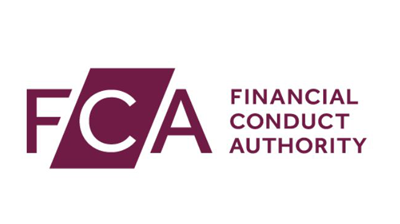
During the latest Asset Finance Connect (AFC) webcast, representatives from the Finance and Leasing Association and the broker community came together to discuss the FLA’s broker accreditation scheme and its implications for the broker channel.
Announced by Chair John Phillipou during February’s Finance & Leasing Association (FLA) annual dinner, the FLA’s new broker accreditation scheme is designed to drive through changes in the asset finance broker-lender channel that the FLA hopes will improve efficiency and increase both compliance and channel transparency.
The changes have been long planned but should be seen in the context of a large-scale customer-initiated fraud originated over some years through the broker-lender channel that was discovered in 2022; the focus by the FCA on intermediaries including worries about commission disclosure; the FCA’s recent intervention in relation to discretionary commission arrangements in auto finance; and possibly also concerns about rapid growth in the volume of business coming from new appointed representative brokers.
The FLA’s asset finance broker accreditation scheme is a key part of a wider effort to bring lenders and brokers closer together. It is believed that by establishing a forum through which lenders and brokers can agree how to better organise the channel, changes can be made effectively and through mutual consent.
The accreditation scheme is a first step and focuses on replacing multiple reviews (the process whereby a lender checks that the broker with whom they deal is compliant with relevant regulations and the lender’s own requirements) which are currently carried out individually by each lender on each of the brokers with whom they deal. Instead, it is intended that there will be a single broker review which will wholly or in part provide the same information for all lenders.
AFC has found that the scheme has been met with scepticism by some brokers who have expressed doubts specifically about the value it delivers to them. Some brokers have raised worries that unless there is a common review requirement then the FLA review will only be one extra review among many and may add to their work.
In a poll of brokers conducted during the recent AFC webcast on the subject, however, 44% of brokers believed that a single broker review which effectively meets most of the needs of lenders reducing the number and extent of reviews done individually by lenders will save brokers time and money (compared to just 8% who felt that it would not).
This is strong evidence that more brokers than not are in favour of the project.
The FLA scheme will evolve, according to Phillipou. And as it does it is expected to progressively deliver more value for both brokers and lenders. This may be enough to bring sceptical brokers on board.
The scheme is expected to cause lenders to move towards accepting a common review requirement which will address the concern that this is just an additional review and will hopefully deliver the intended value for brokers.
It is also hoped that the scheme will provide a common agreement about which actors in the channel fail to meet minimum requirements. It is feared that bad lenders (those who deal with bad brokers) and bad brokers (those who fail the accreditation process or have it withdrawn) bring the industry into disrepute and increase the likelihood of damaging regulatory intervention.
Through its research during and after the webcast, AFC found a significant barrier to change to be the significant mistrust which is evident on both sides when lenders and brokers discuss how to change the way in which the channel operates. This mistrust extends also to the interaction between trade associations.
Some brokers have told AFC that they cannot see compelling value for them in the scheme. Many of these brokers feel that most of the value in the single review process will be derived by lenders. Other brokers accept that this is a starting point and see it as an opportunity for further discussion.
AFC also found a concern expressed by a few participants that the individual interaction between lenders and brokers builds understanding between individual lenders and brokers, and the scheme to delegate that interaction to a third party is counterproductive.
John Phillipou addressed this concern during the webcast pointing out that lenders will still have to have some direct and specific diligence of the broker (and demonstrate this to regulators), with the intention being to cover approximately 75%-85% of what is required with the FLA scheme.
Notwithstanding any concerns, there seems to be a common acceptance that without change there is at least a danger that the industry will repeat the experiences of auto finance providers and their dealer intermediaries.
Consensus and trust will make change easier.
This project appears to be one of several activities taking place in both associations which appear to be designed to build the consensus and trust which is a pre-requisite for making effective changes to the industry.
Representatives from the FLA – John Phillipou, Chair; Simon Goldie, Director of Business Finance & Advocacy; and Mike Randall, Board Member – provided further details about the scheme during a recent AFC webcast, and addressed questions direct from David Foster, Managing Director at Anglo Scottish Asset Finance – the only broker on the panel – and delegates attending the webcast.
You can read the webcast summary and analysis in full here.






